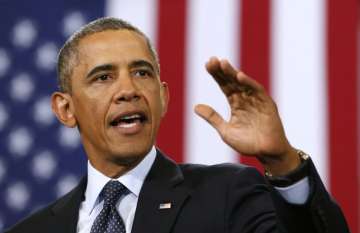US launches crackdown on tax evasion after Panama Papers leak
Washington: In the wake of the public firestorm sparked by the Panama Papers scandal, the Obama administration has announced several new rules to combat financial crimes and close current loopholes in the US system that
Washington: In the wake of the public firestorm sparked by the Panama Papers scandal, the Obama administration has announced several new rules to combat financial crimes and close current loopholes in the US system that allow foreigners to hide assets in American accounts.
The announcement follows a month of intense scrutiny after the release to media organisations of more than 11 million leaked documents detailing the global offshore industry.
The Department of Treasury issued proposed rules to close a current loophole in the US system that allows foreign persons to hide assets in American account, Treasury Secretary Jack Lew said in a letter to the Congress.
A copy of the letter was released to the press by the White House as the Obama Administration issues a slew of measures and urged the Congress to take necessary legislative actions to strengthen financial transparency and combat money laundering, corruption and tax evasion.
"These efforts are critical to preventing criminals from using the global financial system to launder proceeds from corruption or other illegal activities, finance criminal activity or even terrorism, evade international sanctions regimes, or evade taxes," it said.
In recent weeks, the disclosure of the so-called 'Panama Papers' - millions of leaked documents reportedly revealing the use of anonymous offshore shell companies - has brought the issues of illicit financial activity and tax evasion into the spotlight, the White House said.
The new rule will require foreign-owned entities that are "disregarded entities" for tax purposes, including foreign-owned single-member limited liability companies (LLCs), to obtain an employer identification number (EIN) with the IRS.
These entities represent a narrow class of foreign-owned US entities that have previously had no obligation to report information to the IRS or to get a tax identification number, and thus can be used to shield the foreign owners of non-US assets or non- -US assets or non-US bank accounts, the White House said.
The proposed rule will strengthen the IRS's ability to prevent the use of these entities for tax avoidance purposes, and will build on the success of other efforts to curb the use of foreign entities and accounts to evade US tax, it said.
The Treasury also announced regulations on 'Customer Due Diligence' that enhance transparency and protect the integrity of the financial system by requiring financial institutions to know and keep records on who actually owns the companies that use their services.
Through Lew's letter, the administration also called upon the Senate to finally approve tax treaties that have been pending for several years, and that would help crack down on offshore tax evasion.
"We stand ready to work with Congress to act on the administration's legislative proposal, that ensures the United States is in line with international standards on tax information sharing," the White House said.
Treasury is sending to Congress draft legislation requiring legal entities to know and report information on beneficial ownership.
Increasing law enforcement access to "beneficial ownership" information - information about the people who are really behind a corporation or other business entity - will help in preventing and investigating financial crimes.
The US has led efforts within the major economic powers of the G-20 and the Financial Action Task Force (FATF) to strengthen international standards on combating money laundering and terrorist financing and facilitate their implementation.
More than 190 jurisdictions around the world have committed to the FATF Recommendations through the global network of FATF-Style Regional Bodies (FSRBs) and FATF memberships, the White House said.
Since Obama signed FATCA into law in 2010, the United States has negotiated agreements with more than 100 countries that help US enforce its tax laws.
FATCA's pioneering approach to automatic information sharing on tax matters is the template for the development of international standards that have been endorsed by the G-20 nations and are being deployed around the world.
